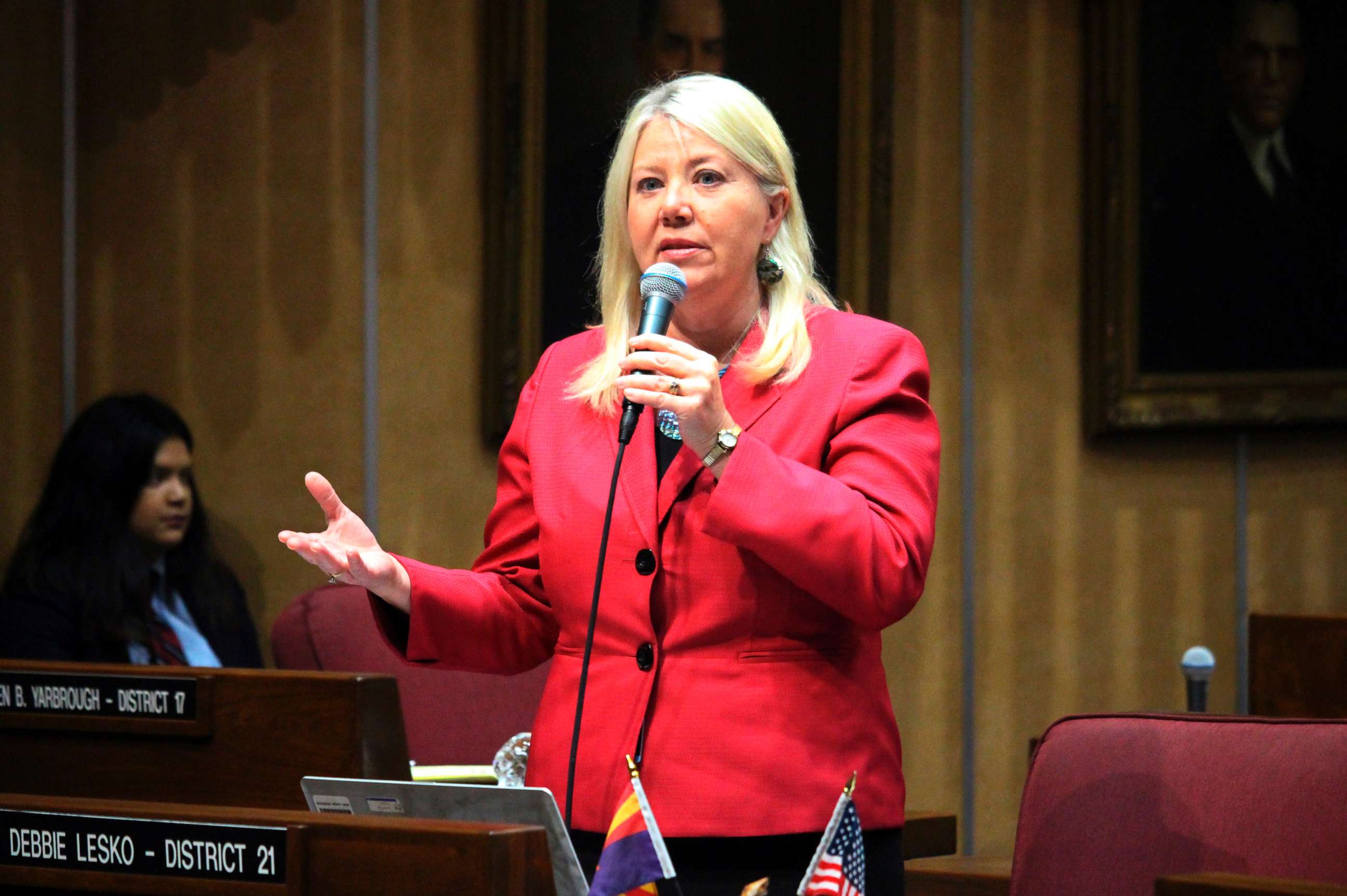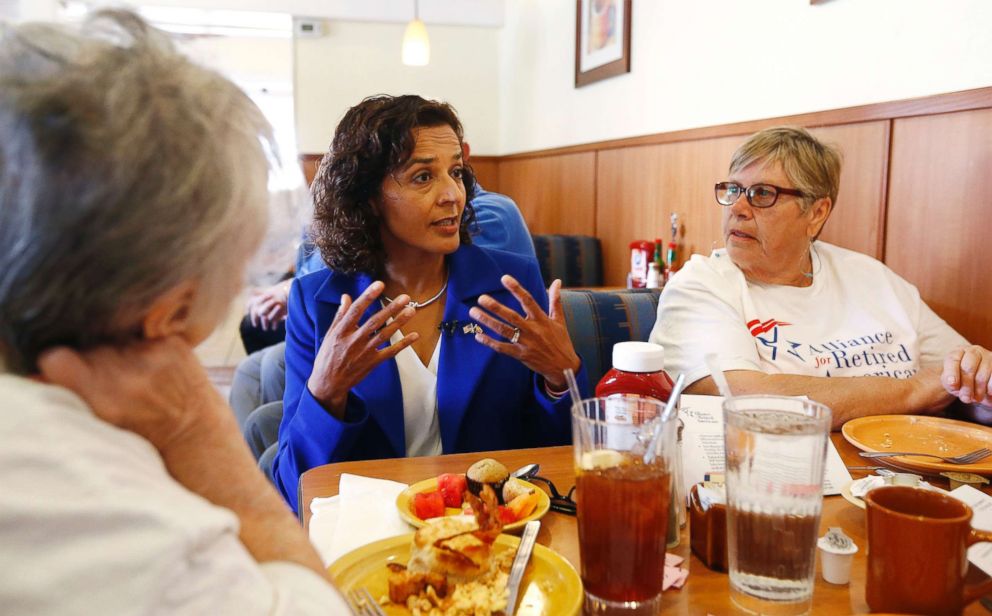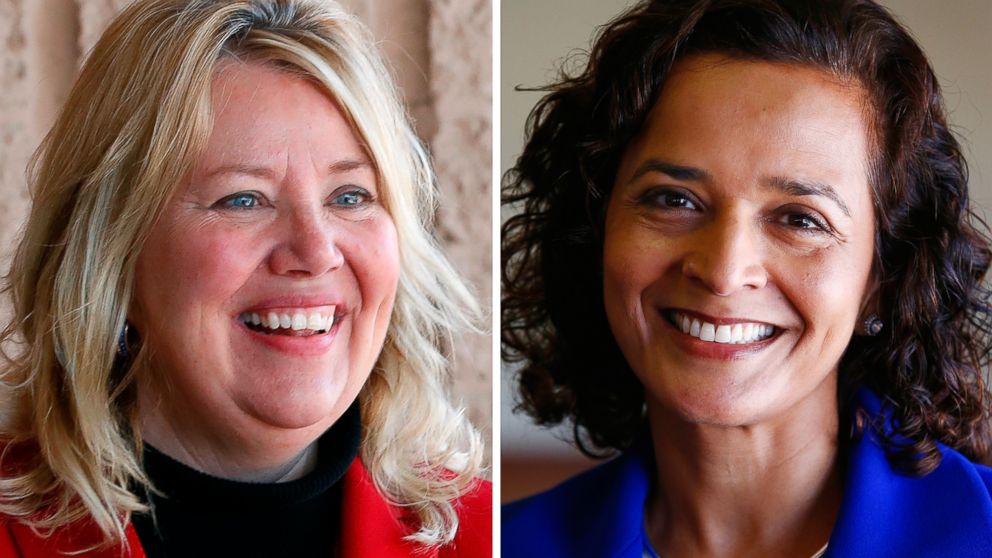Arizona special election another test for GOP in Trump country
Voters will head to the polls today in Arizona's 8th Congressional District, a deep red district where a solid performance by the Democrat would be yet another sign of the party's growing strength ahead of a contentious and competitive midterm election in November.
The race, triggered by the resignation of GOP Rep. Trent Franks last year, pits Democrat and cancer research advocate Hiral Tipirneni against Republican former state senator Debbie Lesko.

President Trump won the suburban district, which lies to the northwest of Phoenix and was once the home base for Maricopa County Sheriff Joe Arpaio, by 21 points in the 2016 presidential election and the population in the district is older than most, with a median age of 43 according to U.S. Census Bureau data.
The average median age for congressional districts in Arizona is 38, and the 8th Congressional District is the 2nd oldest in a state with a significant retiree population.
Tuesday night's results will again give both parties another benchmark of political standing leading up to the midterms. Even a Democratic loss by single digits will cause anxiety among Republicans already convinced that their House majority is in deep trouble.
Democrats have not invested heavily in the race, but Republicans are hoping to avoid another electoral embarrassment after Democrat Conor Lamb's upset victory in Pennsylvania's 18th Congressional District last month, and the consistent over-performing by Democrats in special elections since the beginning of the Trump presidency.
Tipirneni has outpaced Lesko in campaign fundraising by over $100,000, but outside groups have invested heavily in the Republican in recent days. The Republican National Committee (RNC), National Republican Campaign Committee (NRCC) and the Congressional Leadership Fund (CLF) have poured over $1.3 million into the race since the primary, according to FEC filings.
One GOP strategist called the Republican spending in the race an “education campaign” to remind voters the special election was taking place.
The move is likely a counter to the Democratic enthusiasm that has manifested in other recent special elections.
Indications from early vote data show that Republicans still maintain a strong advantage in the district.
As of Friday last week, 151,532 early votes have been cast in the district. According to data from the Arizona Secretary of State's office nearly half of the early votes cast have come from Republicans, and over half of early votes have been cast by voters over the age of 65. In the February primary election, a total of 116,732 ballots were cast according to the official canvas results from the Secretary of State's office, indicating a slight uptick in turnout in a race where the large majority of votes will be cast early.
The candidates
Republican Debbie Lesko, 59, is a former state senator and before that was a state representative. Lesko stepped down from the statehouse in January to focus on the special election.
She got her start in politics with the local GOP about 20 years, becoming as a district chairwoman and eventually running for the statehouse. She spent about 10 years as a volunteer for the party before she ran for public office, joining the state house in 2008.

The Peoria, Arizona resident is a former hearing officer in North Valley. Lesko left an abusive husband 25 years ago, remarried and has three children and two grandchildren.
She has endorsed the president’s idea of a border wall and has called for the repeal of Obamacare.
Lesko is endorsed by Arizona Gov. Doug Ducey, former Arizona Gov. Jan Brewer, GOP Reps. Paul Gosar, Andy Biggs and David Schweikert, the US Chamber of Commerce and the Susan B. Anthony List. She defeated former state senator Steve Montenegro in the February GOP primary for the special election.
Democrat Hiral Tipirneni, 50, is a former emergency room doctor who currently works as a cancer research advocate. She was born in Mumbai, India and her family immigrated to the U.S. when she was just three years old. According to her campaign website, she was inspired to enter the medical field after a childhood illness. She met her husband, Dr. Kishore Tipirneni, during her first year of medical school at Northeast Ohio Medical University.

Tipirneni lost both her mother and nephew to cancer, and because of her medical background has made healthcare a central plank of her campaign. Tipirneni has never run for or held political office before, but told a local Arizona TV station that she first started having conversations about running for Congress the day after Donald Trump was elected President.
Tipirneni was endorsed by EMILY’s List, former AZ Congresswoman Woman Gabby Giffords (including her anti-gun violence PAC), and End Citizens United. Tipirneni defeated LGBTQ activist Brianna Westbrook in the Democratic primary with nearly 60 percent of the vote.
The money race
Tipirneni has out-fundraised Lesko by roughly $130,000 throughout the entire election cycle. Through April 21st, Tipirneni has raised $848,485, while Lesko has raised $718,504.
However that trend has changed since the primary. After the primary through April 17th, Tipirneni has raised $276,503, while Lesko has brought in $413,194.
Since after the primary, outside groups have spent a total of $1.7 million on the special election, overwhelming in favor of Lesko.
A total of $1,358,199 of that has been spent by pro-Lesko groups such as the Republican National Committee (RNC), National Republican Congressional Committee (NRCC), Congressional Leadership Fund (CLF) and the House Freedom Fund.
That number dwarfs outside spending in support of Tipirneni, where groups have spent just over $330,000. Tipirneni got a boost in recent days from the Working Families Party PAC, which rolled out $200,000 worth of television ads in support of the Democrat last week.
The early vote
According to early vote data from the Arizona Secretary of State’s office, a total of 151,532 ballots have been counted as of April 19.
Of those ballots, Republicans hold a clear advantage over Democrats in terms of vote by party registration. Of those over 140,000 ballots, 48.6 percent have been cast by Republicans, 27.7 percent were cast by Democrats, and 23.2 percent were cast by Independents.
In another good sign for Republicans, 56.6 percent of early ballots cast in the election so far have come from voters ages 65 and older, a voting bloc that usually skews in their favor.
The median age among voters that have cast their ballots early in this election is 67, and the early vote is 53.6 percent female.




